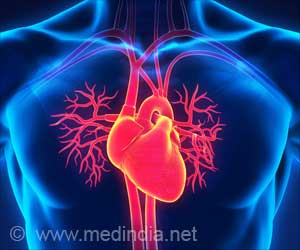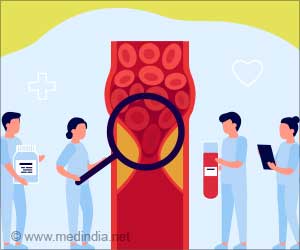Programmable milk exosomes revolutionize targeted therapeutic delivery.

Nebraska-based startup aims to improve human health through targeted drug delivery
Go to source).
‘Milk exosomes may save lives by precisely delivering therapies to cells. #healthtechnology #medindia’





Advertisement
A Boon for Rare Disease Treatment
Minovacca’s flexible technology holds the potential to treat a variety of diseases, including rare conditions often overlooked due to limited funding and small patient populations. “This technology isn’t confined to a single disease. It can be adapted to address numerous rare conditions,” said Dr. Janos Zempleni, Willa Cather Professor of Nutrition and Health Sciences. “Rare disease communities now have hope where there was once despair.”The company’s launch is the culmination of years of research at the University of Nebraska–Lincoln, first proving the viability and safety of milk exosomes as a transport mechanism, then incorporating the genetic engineering and bioorthogonal chemistry techniques enabling targeted delivery. Zempleni credits funding from the U.S. Department of Agriculture’s National Institute of Food and Agriculture (A1511 Nanotechnology for Agricultural and Food Systems program), the National Institutes of Health’s Targeted Genome Editor Delivery Challenge and the Syngap Research Fund for propelling the research to this point.
Advertisement
Precision Approach to Therapeutics
Minovacca is working to license the technology through NUtech Ventures, and Zempleni hired a CEO with expertise in the pharmaceutical industry. Minovacca has acquired office space at Nebraska Innovation Campus and expects to expand its facilities after pinpointing investors.The company will open the door to job opportunities for Husker students in the pharmaceutical space. Minovacca plans to hire Nebraska students whose work will drive the company toward a major milestone: submitting an Investigational New Drug Application to the U.S. Food and Drug Administration, which is a formal request to administer an investigational drug or bioproduct to humans.
Minovacca’s programmable milk exosomes represent a major advance over existing approaches because they enable targeted delivery of therapeutics with an unprecedented level of potency and specificity. Zempleni first demonstrated the safety and scalability of the milk exosomes and developed genetics protocols for making programmable milk exosomes. He then brought Guo, professor of chemistry, on board to devise a strategy for directing the exosomes to particular cellsdepending on the disease at hand.
Their approach is to attach three peptides — short amino acid chains — to the membrane of each exosome. One is a homing peptide, which directs the exosome to bind to a specific site in the body. Another is a “do not eat me” peptide, which sends biochemical signals that allow the exosome to thwart macrophage destruction. The last is a retrofusion peptide, which fortifies the exosome’s survivability once it enters the target cells.
Advertisement
Advancing Drug Delivery with Stability and Safety
Zempleni and Guo developed a novel approach for anchoring the peptides to the exosome membrane. The traditional approach is to use lipid anchors, but these detach when attracted to other lipophilic compounds in the body. To prevent this, the team created docking sites in a membrane protein called CD81, which is firmly anchored to the exosome.Guo used bioorthogonal chemistry approaches to create stable, covalent links between the docking sites and the peptides. The attachment scheme provides stability and uniformity to the exosome structure, boosting the commercial viability of milk exosome-based therapeutics.
“Ensuring this homogeneous structure will allow the FDA to see that the exosomes can be produced consistently from batch to batch,” Guo said.
The strategy overcomes one of the major flaws of current drug delivery approaches. Oftentimes, the therapeutic reaches cells beyond the targeted locations, causing adverse effects. For example, patients receiving chemotherapy often deal with hair loss, gastrointestinal upset and compromised immune function.
“Chemotherapy treatments kill not only cancer cells; they kill any cell that is proliferating fast,” Zempleni said. “And that’s something that we want to minimize with our technology.”
Zempleni said forming Minovacca has been a steep learning curve and an opportunity to expand his thinking beyond day-to-day research. To name the company, he drew on his knowledge of Greek and Roman mythology, which features the Minotaur, a human-bull hybrid. The name aims to reflect the company’s use of milk to help humans — but since bulls don’t produce milk, Zempleni changed “taur” to “vacca,” the Latin word for cow.
No matter which role he is in on a given day — creative, scholar or now entrepreneur — Zempleni’s goal is always the same.
“It might sound cheesy, but if I had a choice between making $10 million in the company or saving 10 million lives, I would go for saving the lives,” he said. “I’m not into this for the money. It’s about helping people.”
Reference:
- Nebraska-based startup aims to improve human health through targeted drug delivery - (https://news.unl.edu/article/nebraska-based-startup-aims-to-improve-human-health-through-targeted-drug-delivery)
Source-Eurekalert















